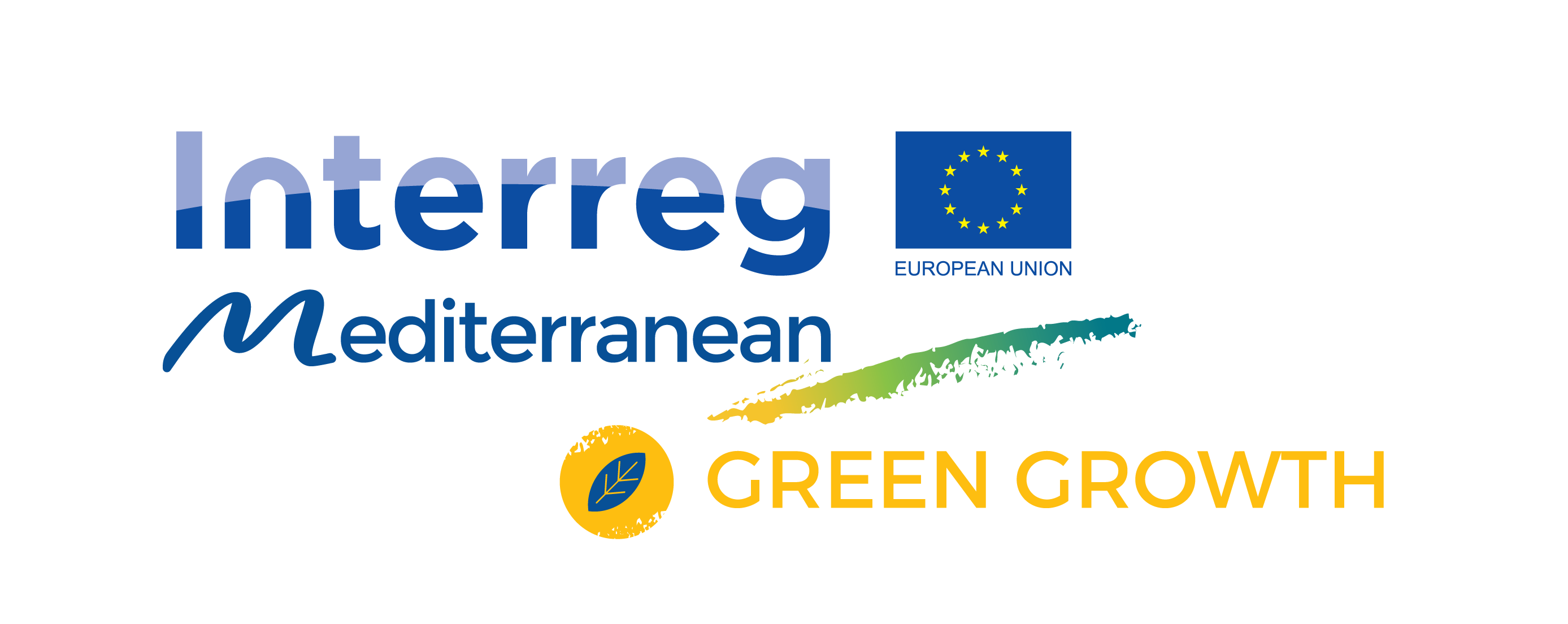4 Thematic Working Groups (TWGs) were created within the Green Growth Community to drive systematic technical cooperation and synergies and enable capitalisation and policy outputs. The themes were developed along the lines of the EU Circular Economy Action Plan.
These White Papers present the Community’s work in supporting the transition towards green growth and a circular economy in the Mediterranean. The factsheets are 2 page summaries of each White Paper.
↓Download all Factsheets | Download all White Papers
White Paper 1 – Make More with Less: Resource Efficiency
TWG1 tackled challenges related to resource efficiency with a focus on the agrofood sector and urban areas through the implementation of the Smart City concept. This White Paper zooms in on the difficulties that companies face in measuring their environmental footprint and resource efficiency; the use of predominantly low-cost, low-tech, labour-intensive and rudimentarily equipped greenhouses; the lack of energy efficiency and renovation of EU buildings. It then presents the projects’ solutions and the benefits of resource efficiency for both the environment and the economy.
Contributing Projects: CAMARG, ESMARTCITY, MADRE, MED GREENHOUSES, PEFMED, REINWASTE
White Paper 2 – Towards Circular Towns and Cities: Green & Smart Public Services
TWG2 provided solutions for green public procurement and addressed issues linked to the lacking integration of sustainability and circular economy criteria in green public procurement and the provision of public services. This White Paper also highlights the need to develop the capacity of private actors to adopt eco-innovation and green energy in order to participate in green e-tenders. A further focus concerns the limited availability of mobility data in urban areas due to a reluctance to share data and the high costs involved in data aggregation and management.
Projects that contributed to this white paper: ESMARTCITY, GRASPINNO, GREEN MIND.
White Paper 3 – Zero waste: problems become opportunities in Waste Prevention & Management
TWG3 promoted solutions to reduce both organic (livestock) and inorganic waste, and mapped technologies, systems, and strategies for proper waste management. The paper illustrates the issues faced by TWG3, such as the over-production and over-application of slurry and manure with high nitrogen content and the need to treat it, as well as the lack of treatment of organic and inorganic agrifood waste. The document highlights the projects’ contributions to achieve the full utilization of resources throughout their life cycle in order to create a circular economy.
Projects that contributed to this white paper: REINWASTE, RE-LIVE WASTE
White Paper 4 – Fit for a circular future: Competitiveness & Innovation
TWG4 implemented and assessed solutions to promote the competitiveness and innovation of Mediterranean SMEs in a circular economy. It addresses issues linked to smart specialization, public-private partnerships and innovative funding; the lack of effective clusters for companies and stakeholders to connect, work together and transfer innovations; the limited access of SMEs to tools, services and funds that drive innovation; limited consumer awareness and interest in “green” and “circular” products and services.
Projects that contributed to this white paper: ARISTOIL, CREAINNOVATION, EMBRACE, FINMED, GRASPINNO, GREENOMED, REINWASTE
White Paper 5 – Synergies for Green Growth
This transversal White Paper displays the horizontal approach towards cooperation on Circular Economy and Green Growth in the Mediterranean as well as the challenges, success factors and lessons learned.
